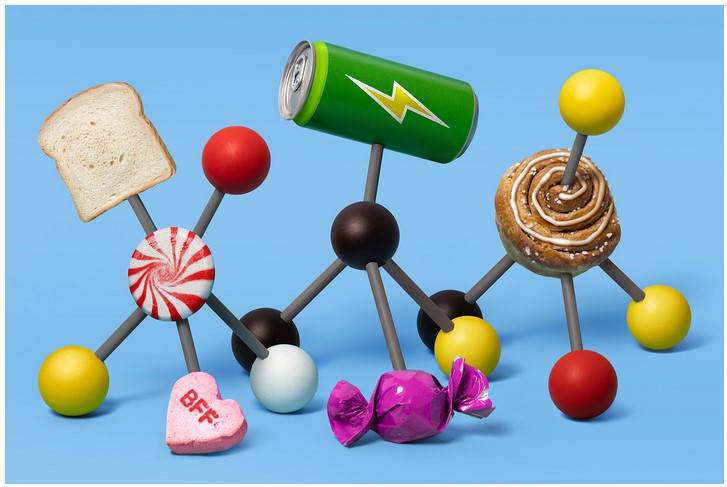Carcinogens in Food: Understanding and Avoiding Harmful Substances in Your Diet

Carcinogens are substances that can cause cancer. They are found in many everyday items, including food. While it is impossible to completely avoid carcinogens, it is important to understand the risks associated with them and how to reduce your exposure. This article will provide an overview of carcinogens in food, the potential health risks associated with them, and tips for avoiding them in your diet.
What are Carcinogens in Food and How Can We Avoid Them?
Carcinogens are substances that can cause cancer. They can be found in food, either naturally occurring or as a result of food processing. Examples of carcinogens in food include aflatoxins, heterocyclic amines, polycyclic aromatic hydrocarbons, and nitrosamines.
Aflatoxins are naturally occurring toxins produced by certain fungi that can contaminate food crops such as corn, peanuts, and wheat. They can cause liver cancer and other health problems. To avoid aflatoxins, it is important to buy food from reliable sources and to store food properly.
Heterocyclic amines (HCAs) are chemicals that form when meat is cooked at high temperatures. They can increase the risk of certain types of cancer, such as stomach and colorectal cancer. To reduce the risk of HCAs, it is important to avoid charring or burning meat, and to cook it at lower temperatures.
Polycyclic aromatic hydrocarbons (PAHs) are chemicals that form when food is smoked, grilled, or fried. They can increase the risk of certain types of cancer, such as stomach and colorectal cancer. To reduce the risk of PAHs, it is important to avoid charring or burning food, and to cook it at lower temperatures.
Nitrosamines are chemicals that form when food is cured, smoked, or processed with nitrates or nitrites. They can increase the risk of certain types of cancer, such as stomach and colorectal cancer. To reduce the risk of nitrosamines, it is important to avoid processed meats and to choose fresh or frozen meats instead.
In conclusion, carcinogens can be found in food, either naturally occurring or as a result of food processing. To reduce the risk of cancer, it is important to buy food from reliable sources, to store food properly, to avoid charring or burning food, and to choose fresh or frozen meats instead of processed meats.
Exploring the Health Risks of Carcinogens in Food and How to Reduce Exposure
Carcinogens are substances that can cause cancer. They are found in many foods, including processed meats, smoked fish, and some fruits and vegetables. Exposure to these substances can increase the risk of developing cancer. It is important to understand the health risks associated with carcinogens in food and how to reduce exposure.
Processed meats, such as bacon, hot dogs, and deli meats, contain nitrates and nitrites, which are known carcinogens. These substances are added to processed meats to preserve them and give them their characteristic flavor. When these meats are cooked at high temperatures, they can form compounds called nitrosamines, which are also carcinogenic. Eating processed meats regularly can increase the risk of developing certain types of cancer, such as colorectal cancer.
Smoked fish, such as salmon and trout, can also contain carcinogens. These substances are formed when the fish is smoked at high temperatures. The smoke contains polycyclic aromatic hydrocarbons (PAHs), which are known to be carcinogenic. Eating smoked fish regularly can increase the risk of developing certain types of cancer, such as stomach cancer.
Some fruits and vegetables can also contain carcinogens. Fruits and vegetables that are grown in areas with high levels of air pollution can contain PAHs, which are known to be carcinogenic. Eating these fruits and vegetables regularly can increase the risk of developing certain types of cancer, such as lung cancer.
Fortunately, there are steps that can be taken to reduce exposure to carcinogens in food. One of the best ways to reduce exposure is to limit the amount of processed meats, smoked fish, and fruits and vegetables grown in areas with high levels of air pollution that are consumed. Additionally, it is important to cook processed meats and smoked fish at lower temperatures to reduce the formation of nitrosamines and PAHs. Finally, it is important to wash fruits and vegetables thoroughly before eating them to reduce the amount of PAHs that may be present.
By understanding the health risks associated with carcinogens in food and taking steps to reduce exposure, it is possible to reduce the risk of developing certain types of cancer. It is important to be aware of the potential risks and take steps to reduce exposure to carcinogens in food.
Conclusion
Carcinogens in food can be a serious health concern, but with the right knowledge and precautions, it is possible to reduce your risk of exposure. Eating a balanced diet with plenty of fresh fruits and vegetables, limiting processed foods, and avoiding known carcinogens can help to keep you and your family safe. Additionally, it is important to stay informed about the latest research and regulations regarding carcinogens in food, so that you can make informed decisions about what you eat.